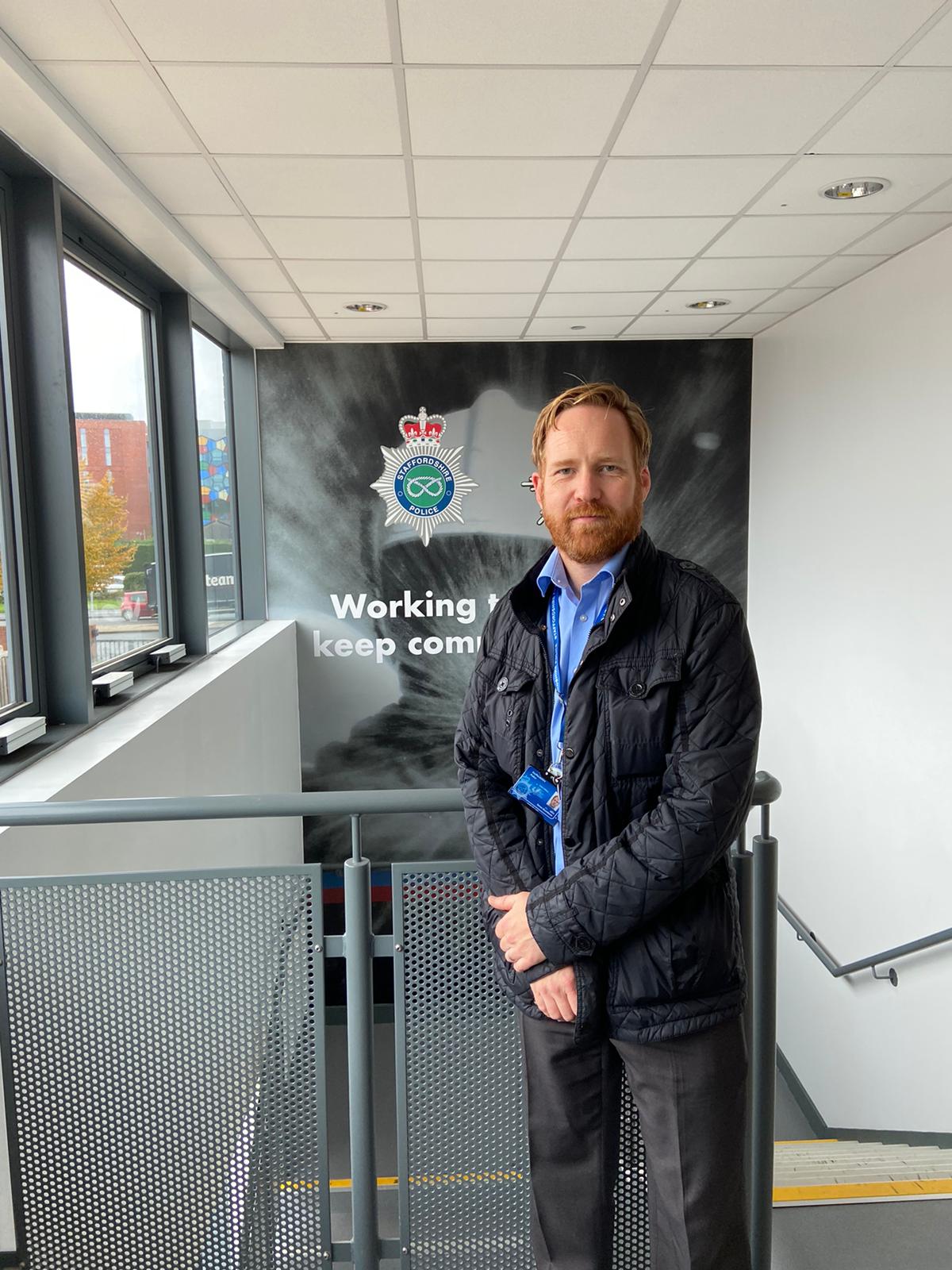A detective who was diagnosed with dyslexia 10 years ago having spent decades struggling has revealed he gets his “drive and enthusiasm” from supporting others with the condition.
Staffordshire Police Federation representative Simon Beardmore has told of the relief he felt when he was given his diagnosis.
However, despite being in the Force for 20 years, it was not until father-of-three Simon failed the detective exam five times that questions were raised.
“I’m lucky that I’ve always worked with exceptional colleagues, who have always supported me. I spoke to my supervisor and the organisation actually paid for me to have a dyslexia assessment. It was then that all of a sudden, things started to make sense,” said Simon, whose wife, a primary school teacher, had previously suggested he might be dyslexic.
“When I was officially diagnosed, the relief was unbelievable. The emotions I felt were on par with that of the birth of my daughters and at my wedding; anything significant in my life.
“It did take me a while to understand and, at first, there was an element of embarrassment, but I knew I had to get over that. I’m now friends with my dyslexia.
“I remember someone I arrested told the custody sergeant they were dyslexic and then asked, ‘how can you be a police officer if you’re dyslexic?’ My stance is that a person with dyslexia can do anything once you understand it.
“After all, I firmly believe that the police should reflect society and there are people in our society who have dyslexia. We’re not all perfect in the police force.”
Simon, who finds himself getting confused very easily, explains that he was always “just OK” at school but struggled with exams.
“The thing with being dyslexic is, it’s so much deeper than just a problem with words,” he added, “I get my left and right muddled up, 24-hour clock times mixed up, as well as my front and back – which in policing can be very difficult.”
Having received his diagnosis, Simon recalls “needing to come out” as dyslexic to his colleagues, who were all very supportive.
“Some days are really hard because my brain won’t allow me to process things, especially when I’m in a very busy environment, with the phone constantly ringing but my colleagues understand that,” he said.
“Support from my colleagues, especially those with dyslexia, is key because they recognise when I’m struggling, they just get it, I have a great network around me. They have my back, and we all look after each other, that’s how it works.
“I have some great colleagues with dyslexia, who I keep in touch with, and we work together and bounce ideas around to help our roles in the police, but also to help the organisation with others who are struggling with dyslexia.
“I feel that I’m in a position where I can take inspiration from my colleagues and I hope they feel the same about me too.”
Simon is now speaking out about the condition to not only support others who are suffering the same challenges but also educate teams on dyslexia so they have a better understanding of what it is like living with it.
I’ve never really struggled with knowing I’m dyslexic. I do things to help myself, like cycle to work and take the dogs out, to try to manage my frustrations and clear my head after work,” said Simon.
“And I get inspiration from celebrities and other people who have dyslexia. There is endless inspiration online – a small snapshot into their lives and struggles with dyslexia help me and make me realise I’m not alone.
“I’m also open about having dyslexia, so I can help others.”
Simon, who accessed support from the Force’s Disability Carers’ Network when he was first diagnosed, has since created a sub-group specifically designed to support those with dyslexia.
“The police are definitely getting better at supporting conditions like dyslexia and I’d like to think I’m helping to drive that,” Simon added.
“I know others that have struggled with having the disability, more than I have but my coping mechanism is talking. I like to talk about having dyslexia. Don’t get me wrong, it’s been hard and it’s definitely been challenging and continues to push me, but I have no shame in talking about it. This is who I am.
“Not all colleagues feel they can talk about it, some people feel embarrassed and then it becomes a sort of domino effect, whereby you’re struggling to come to terms with the condition while spinning dozens of plates at work.
“I want to change the way people feel and also how others understand dyslexia. I strive to help my colleagues who need support.”









